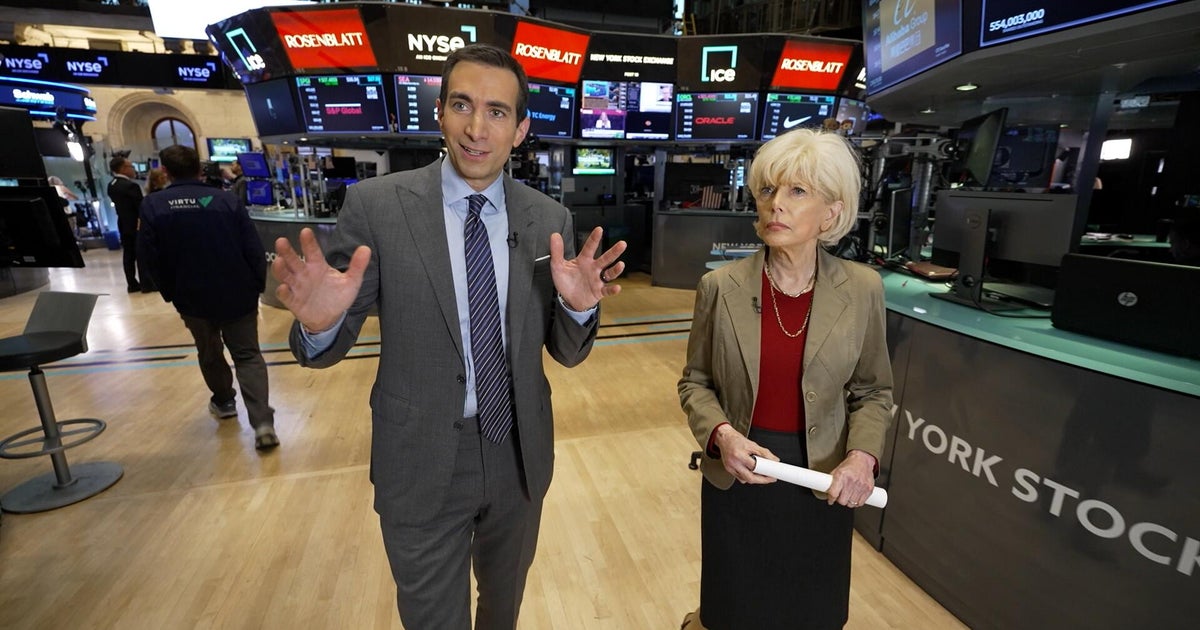France Probes Shein and Temu Over Sex Doll Sales

France Launches Probe into Shein and Temu Over Sex Doll Sales
French authorities have opened investigations into prominent online retailers Shein, Temu, AliExpress, and Wish for allegedly selling sex dolls with childlike features. The Paris prosecutor’s office cited concerns about these platforms distributing violent and pornographic content accessible to minors, triggering a legal inquiry into possible violations related to child protection laws.
Shein’s Response and Wider Industry Impact
Shein has pledged full cooperation with French judicial authorities, committing to transparency and the removal of all related listings. The company announced a total ban on sex-doll-type products after the scandal erupted, describing the incident as “serious, unacceptable, intolerable.” This controversy coincides with Shein’s planned launch of its first physical store in Paris, which has met with public outcry and political resistance.
Broader Implications for Online Retailers and Regulation
The case highlights growing scrutiny over e-commerce platforms and their responsibility to prevent harmful content. French officials have threatened to ban Shein from the market if violations recur, reflecting a wider effort to protect minors and regulate digital marketplaces amid increasing concerns about illegal and inappropriate material online.
About the Organizations Mentioned
Shein
Shein has rapidly emerged as a global leader in fast fashion by leveraging technology, data analytics, and an agile supply chain to deliver trendy, affordable apparel to a digitally native audience[1][3][6]. Founded in Nanjing, China, in 2008, Shein initially focused on wedding dresses but pivoted to women’s fashion, eventually expanding into men’s, children’s, and accessory categories. The company has never operated physical stores in China; its explosive growth has been driven entirely through direct-to-consumer online sales, primarily via its app and website[4][6]. At the core of Shein’s success is its “real-time fashion” model, which takes fast fashion to unprecedented speeds. The company uses advanced algorithms to track social media trends and customer behavior, rapidly translating viral styles into new products—sometimes launching over 1,000 new items daily[3]. This demand-driven approach minimizes inventory waste and allows Shein to offer an ever-refreshing assortment at rock-bottom prices[3][5]. Its supply chain is tightly integrated with thousands of small manufacturers in China, enabling quick turnaround from design to delivery, often within a week[5][6]. Shein’s on-demand production system means items are only manufactured after they prove popular online, reducing overstock and markdowns[5][8]. Shein’s marketing is equally innovative, relying heavily on influencer partnerships, gamified app features, and targeted social media campaigns to engage Gen Z and millennial shoppers[1][4]. The company’s app acts as both a sales funnel and a retention engine, using AI-driven recommendations, daily check-ins, and rewards to boost customer loyalty and lifetime value[1]. By 2020, Shein’s annual revenue had surged past $10 billion, and by 2022, it reportedly reached $24 billion—surpassing the combined sales of H&M and Zara and achieving a peak valuation of $100 billion[3
Temu
Temu is a rapidly expanding Chinese e-commerce platform that has taken the global online retail market by storm. Owned by PDD Holdings—the same parent company behind Pinduoduo, a major Chinese e-commerce player—Temu launched with a mission to connect consumers directly with manufacturers, primarily based in China. This direct-to-consumer model, often described as customer-to-manufacturer (C2M), enables Temu to offer an enormous range of products at exceptionally low prices, from fashion and electronics to home goods and beauty products. Since its launch, Temu has achieved explosive growth, quickly becoming one of the most downloaded shopping apps in the United States and other international markets. In just over a year, the platform reportedly generated billions in revenue, with estimates suggesting $16–17 billion in sales in 2023 alone. Its success is attributed to a combination of aggressive marketing, a user-friendly app, and a strategy focused on capturing market share rather than immediate profits—mirroring Amazon’s early expansion tactics. Temu’s business model stands out for its use of advanced algorithms and analytics to identify trending products and optimize offerings in real time. By cutting out wholesalers and retailers, Temu streamlines the supply chain, allowing for lower prices, though this often means longer delivery times compared to competitors like Amazon. The company has also invested heavily in marketing, including high-profile Super Bowl ads, to boost its brand visibility. Today, Temu is a major disruptor in the global e-commerce landscape, challenging established giants with its low-cost, high-volume approach. Its rapid rise, innovative technology, and bold expansion strategy make it a key player to watch in the future of online retail.
AliExpress
AliExpress is a global online retail platform launched in 2010 by the Chinese Alibaba Group, designed to connect small businesses primarily in China and other countries, such as Singapore, with international consumers. It functions as a marketplace where independent sellers offer a wide variety of products—including apparel, electronics, home goods, and more—directly to buyers worldwide, resembling platforms like eBay in its model[2][5]. As of 2025, AliExpress attracts over 500 million monthly visitors and serves customers across more than 200 countries, positioning itself as one of the largest cross-border e-commerce platforms globally[1]. Its parent company, Alibaba Group, reported revenues exceeding $126 billion in fiscal 2024, with AliExpress contributing significantly to its international commerce segment, which has grown more than twenty-fold in the past decade[1][3]. In 2024, AliExpress’s annual revenue was approximately $51.8 billion, with steady growth expected into 2025[7]. AliExpress’s business model evolved from a business-to-business portal into a more consumer-oriented marketplace that supports business-to-consumer and consumer-to-consumer transactions, as well as cloud computing and payment services[2]. Unlike Amazon, AliExpress does not sell products directly; it acts solely as a platform facilitating sales between sellers and buyers[2]. A notable strength lies in its mobile-first approach, with over two-thirds of users shopping via mobile devices, and a high proportion of traffic coming from direct visits—indicating strong brand recognition and customer loyalty[1]. The platform offers localized storefronts and operates in multiple languages, enhancing accessibility across diverse markets[2]. In 2025, AliExpress is expanding its outreach, especially in the U.S., with a 358% increase in U.S. merchant participation and new initiatives like AI-powered seller summits and programs supporting local sellers[4]. Despite challenges in dropshipping due to tariffs and shipping delays, AliExpress remains a vital channel for international e-commerce,
Wish
Wish is a global e-commerce platform founded in 2010 by Piotr Szulczewski and Danny Zhang, currently operated by ContextLogic Inc. in San Francisco. It connects millions of customers directly with manufacturers and sellers worldwide, offering a wide range of affordable products including fashion, electronics, home goods, and beauty items[1][3][5]. Wish’s business model eliminates traditional intermediaries, allowing it to offer products at significantly lower prices by charging transaction fees on sales, seller commissions, and advertising fees for product visibility[1][2]. The platform is notable for its mobile-first approach, initially focusing on mobile app users, which fueled its rapid growth. It leverages advanced AI algorithms to personalize the shopping experience by analyzing user behavior and preferences, presenting tailored product recommendations to enhance user engagement and sales[1][2]. Wish also incorporates social shopping elements, encouraging users to share purchases and wishlists, creating a community feel that influences buying decisions[2]. Wish’s innovative technology and low-price strategy initially attracted a large, budget-conscious global audience, making it a key player in the competitive e-commerce landscape. However, the platform has faced criticism for selling poor-quality, counterfeit, or unsafe products, leading to regulatory challenges, such as being delisted from Google’s French app store in 2021 due to non-compliance with European regulations[3]. Customer dissatisfaction with seller communication and product quality has also been a persistent issue[3]. Despite these challenges, Wish’s revenue model remains diversified and sustainable, relying on multiple streams including fees and advertising. As of early 2024, Wish was in the process of being sold to Qoo10, reflecting a shift in its corporate status after years of ups and downs[3][4]. Its origins in predictive AI and focus on affordable, personalized shopping continue to define its unique position in global e-commerce[4].
Paris prosecutor's office
The **Paris Prosecutor's Office** (Parquet de Paris) is a central pillar of the French criminal justice system, responsible for initiating and conducting criminal prosecutions in the Paris jurisdiction. Its core mission is to enforce the law by investigating offenses, overseeing police custody, and deciding whether to prosecute, pursue alternative measures, or dismiss cases. The office acts as the public interest defender in criminal matters, ensuring that society’s interests are represented but does not itself judge cases—that role belongs to the judiciary[1][2][3]. Historically, the Paris Prosecutor’s Office evolved from the broader French Public Prosecutor system, which operates under the principle of discretionary prosecution, granting prosecutors the authority to determine the best course of action for each case. This includes supervising police investigations, managing custody and arrest procedures, and collaborating with investigative judges for serious crimes. The office also plays a part in crime prevention and criminal policy setting through coordination with police and other judicial authorities[1][4][5]. A notable feature of the Paris Prosecutor’s Office is its organizational structure and expertise. It comprises around 18 magistrates with diverse professional backgrounds, including business and complex criminal investigations, supported by special advisors, clerks, and technical staff. The office collaborates closely with specialized units such as the Central Office Against Corruption and Financial and Tax Crimes (OCLCIFF), and other police and customs services, reflecting its role in handling complex financial and organized crime cases. It operates from the Paris courthouse and maintains a high capacity for legal and technical analysis[6]. The Paris Prosecutor’s Office is recognized for its role in complex financial crime and business-related prosecutions, making it highly relevant to readers interested in business and technology news. It ensures that corporate misconduct, corruption, and financial crimes are thoroughly investigated and prosecuted, thereby contributing to a fair and transparent business environment in France[6][8]. The office continues to adapt with evolving legal frameworks, maintaining independence and rigor in upholding justice.
French authorities
The term "French authorities" refers to the complex and multi-layered system of governance in the French Republic, which operates under a semi-presidential, unitary, and decentralized model established by the 1958 Constitution. This system is characterized by a clear separation of powers among the executive, legislative, and judicial branches, ensuring checks and balances while maintaining a strong central government. Historically, France was a highly centralized state, but significant reforms, notably the Defferre Acts of 1982 and 1983, initiated a process of decentralization. The 2003 constitutional reform further solidified the status of local authorities, granting them financial autonomy and the ability to hold local referenda. Today, the French authorities include the President, the Prime Minister, the Government, the bicameral Parliament (National Assembly and Senate), and the Constitutional Council, which oversees the constitutionality of laws. The French authorities play a crucial role in shaping national policy, regulating business and technology sectors, and ensuring the protection of individual rights. They are responsible for passing legislation, managing the budget, and overseeing the implementation of public policies. The decentralized nature of the state means that local and regional authorities also have significant responsibilities, including economic development, education, and infrastructure. Key achievements of the French authorities include the establishment of a robust legal framework that supports innovation and entrepreneurship, the promotion of digital transformation, and the active support of international cooperation through organizations like the Francophonie. The authorities are also committed to human rights and the independence of institutions such as the Office of the High Commissioner for Human Rights. Currently, the French authorities continue to adapt to the challenges of the digital age, fostering a business environment that encourages technological advancement and international collaboration. Their commitment to transparency, accountability, and the rule of law makes France an attractive destination for business and technology investments.















